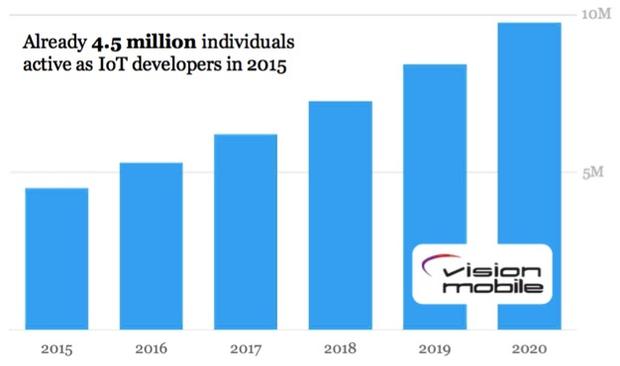Earlier this year, Virginia Governor Terry McAuliffe signed into law a bill that directs the Board of Education to re-evaluate high school graduation requirements in an attempt to provide the “knowledge and skills that students should attain during high school in order to be successful contributors to the economy of the Commonwealth.” Another bill signed by the Governor now makes it easier for industry professionals to earn temporary teaching credentials to attract more career and technical teachers to the classroom.
The Virginia Board of Education now has the chance to help prepare today’s students for a new and exciting economy. Boards of education across the country can equip students with 21st century skills through comprehensive training in STEM fields, including computer science and coding. Just as important, allowing industry professionals to earn temporary teaching credentials makes it easier for them to share their expertise in the classroom, ensuring Virginia’s students have skilled IT educators armed with real-world experience. These new education opportunities could pay serious dividends by paving the way for the next generation workforce of software developers. In today’s economy, digital literacy is a necessity, and these new laws could prepare Virginia’s youngsters for a world in which software coding is just as important as reading and writing.
Each day innovators are unveiling new products and services that are improving our world, but in order to continue this growth, a strong talent pipeline is crucial. The Internet of Things (IoT), for instance, is expected to grow to 200 billion devices — or 25 devices for every person on Earth — by 2020, according to one report. If IoT is to realize its full potential, 10 million software developers will be needed by 2020. That’s more IoT jobs than people who were employed in grocery stores, doctors’ offices, public and private colleges, and department stores in 2014 combined!
Technology jobs are quickly becoming the backbone of the American economy. Without robust STEM education in our schools, the workforce needed to support these new jobs will never materialize, threatening job and economic growth and ultimately the United States’ role as the global hub for innovation. To meet the demand for this burgeoning field, the Alliance recently launched the Developer Workforce Initiative to prepare the next generation of coders. This new initiative is a global effort to increase the size, expertise, and understanding of the software developer workforce. It was hatched by a diverse set of companies, including traditional technology companies like Google and Facebook, and others created long before the digital revolution like Ford and AT&T. Such a diverse roster of early supporters underscores just how critical a strong developer workforce is in today’s digital economy.
And learning digital skills doesn’t just help the economy; it increases a professional’s salary. A recent study indicated that 80 percent of middle-skill jobs require some sort of digital literacy, and that jobs that are digitally-intensive pay more. In fact, for someone with a bachelor’s degree in computer science or computer engineering, lifetime earnings are 40 and 70 percent higher, respectively, than the average college graduate. Yet even with clear evidence that digital skills translate into more lucrative and abundant employment opportunities, only a quarter of K-12 schools in the United States offer computer science classes that include programming and coding, and far fewer have industry professionals teaching in the classroom.
Boards of education, like Virginia’s, can give students a head start and prepare them for the workforce of the future. And leveraging the existing workforce of industry professionals to teach students is a smart way to do it. Let’s ensure our students are digitally literate — not by today’s standards, but by tomorrow’s. We owe it to our students and our future.
Jarrod Nagurka
U.S. Policy and Government Relations Associate






